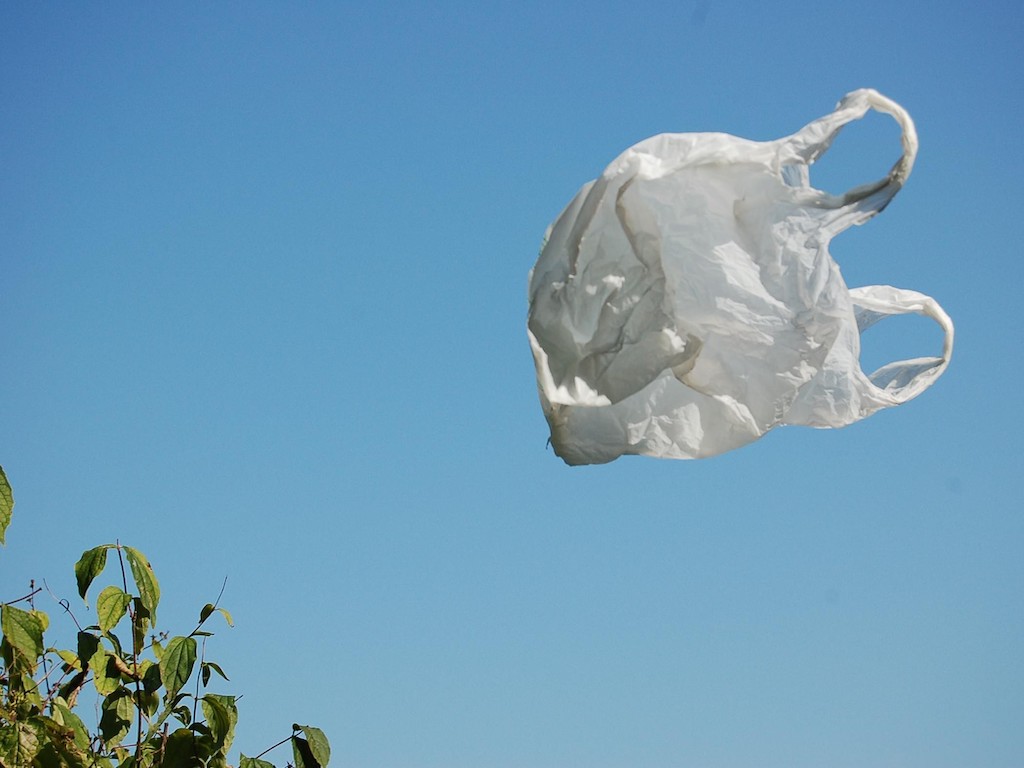3 Mins Read
A number of conservative think tanks and lobbying groups are now using the coronavirus pandemic to stoke fears about reusable products in order to fight plastic bag bans in the United States. Articles misrepresenting studies are now being circulated to convince readers that reusable cloth bags are worse than plastic ones in terms of spreading the coronavirus, and have been found to be linked to Republican groups such as the Manhattan Institute. Campaigners from Greenpeace USA are warning that this is exacerbating environmental threats on top of the current public health emergency.
Every year, the world tosses out an estimated 1 trillion single-use plastic bags – the majority of which do not end up being collected or recycled, and instead end up polluting oceans, rivers and add to overflowing landfills. Amid the coronavirus, Greenpeace USA is warning that some articles linked to a number of right-wing organisations are misrepresenting scientific evidence to convince people that reusable cloth bags can help to spread the disease in order to fight anti-plastic laws.
John Hocevar, ocean campaigner at Greenpeace USA, told the Guardian that such tactics are using the current public health emergency as an “opportunity to exploit people’s fears around Covid-19 to push their pro-pollution agendas.”
Some of these stories that exploit current fear about the coronavirus have been linked to major right-wing organisations such as leading free-market think tank Manhattan Institute, and are aimed at opposing plastic bag legislation. One story, for example, is headlined “Greening our way to infection”, and refers to unnamed research that the author claims shows that bacteria and viruses can survive on tote bags for 9 days.
Existing scientific research finds that Covid-19 could be stable on plastic and steel for as long as 3 days, compared to 1 day on cardboard materials and 4 hours on copper. However, these studies have not examined how long viruses stay on cloth, and there is little data that compares the stability of Covid-19 on reusable bags against plastic bags.
However, despite lacking in scientific evidence, lobbying efforts by groups including the Manhattan Institute and libertarian pro-Trump organisation Competitive Enterprise Institute (CEI) have managed to persuade a number of states and cities in the United States to annul plastic bag bans, citing the coronavirus pandemic as a reason.
While New York is choosing to delay enforcing the plastic bag ban until June, Maine and Massachusetts have repealed anti-plastic bag legislation and New Hampshire has gone further by banning reusable bags altogether.
Both the organisations in question have been reportedly linked to fossil fuel companies, according to the New York Times. The CEI’s gala last year, for instance, was sponsored by the Koch Industries-owned Charles Koch Institute and the Petrochemical Manufacturers association.
In Hong Kong and around the world, a number of companies have also begun to step back from policies regarding reusables. Starbucks, for instance, made the decision to no longer allow customers to bring in their own coffee cups and Pacific Coffee has suspended their Bring Your Own Mug offer.
While companies are right to be concerned about the pandemic, if reusable products are properly self-cleaned and disinfected, we can responsibly reduce the burden on our planet whilst combating the virus. As the virus is spread through respiratory droplets, primarily when an infected person coughs or sneezes, reusables are only a risk item if it has been exposed to these droplets.
Infectious-disease scientists have also reiterated that washing hands should be the greatest priority in terms of precautionary measures – the risk of contracting the disease and transmitting it to others due to poor hand hygiene is far higher. Other important prevention measures include avoiding touching your face, wearing a surgical face mask in crowded public places and practicing social distancing.
Read our earlier news coverage of Covid-19 and tips on prevention here.
Lead image courtesy of Sophie Vela / childrenseyesonearth.org.




